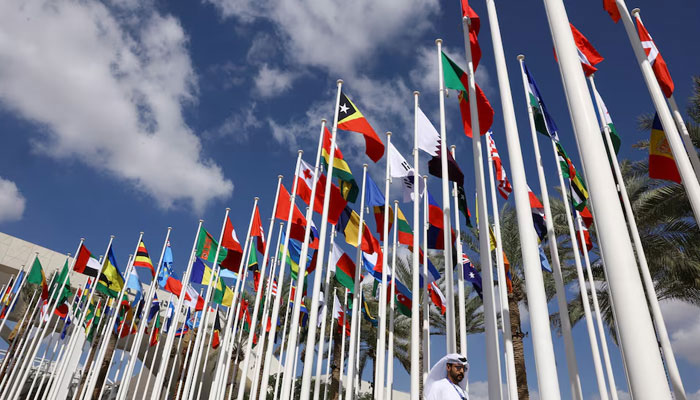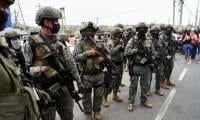Neocolonial agenda in retreat
Ostensible purpose of international bodies was to strengthen international peace and security
Following its victory in World War II, the US-led West, taking advantage of its overwhelming economic and military power, founded a new world order aimed at establishing its global hegemony through such multilateral organizations as the United Nations, the World Bank, and the IMF.
The ostensible purpose of these bodies was to strengthen international peace and security, promote human rights, and develop multilateral cooperation for economic growth and financial stability. However, the organizational structures of these institutions were designed to allow the US-led West to play a controlling role in them, especially while making major decisions relating to international peace, security, and economic progress.
Thus, behind the veneer of nice-sounding declarations in support of international peace, human rights, and economic progress contained in their founding documents, the real purpose of these multilateral institutions was and remains to perpetuate Western global hegemony.
The dismantling of the British and French colonial empires after World War II led to an era of American domination and neocolonialism, that is, an era marked by the use of overt and covert means by the US to influence the political, security and economic policies of third-world countries for establishing its primacy and serving its national interests during and after the cold war.
Considering the history of US foreign policy since the 19th century, this was hardly surprising. The Monroe Doctrine, which declared the Western Hemisphere off limits for colonization and interference by European powers, was announced by the US in 1823. As America’s economic and military power grew, it employed this doctrine to establish its supremacy in this vast region, especially after Theodore Roosevelt became its president in 1901.
In the process, as noted by Graham Allison in his widely acclaimed book entitled ‘Destined for War -- Can America and China Escape Thucydides’s Trap?’, the US declared war on Spain, expelling it from the Western Hemisphere, thus enabling Cuba to gain independence and acquiring Puerto Rico, Guam, and the Philippines in 1898. Washington supported an insurrection in Colombia to create a new country, Panama, in 1903 to build the Panama Canal.
President Theodore Roosevelt, in his State of the Union address in 1904, declared that the US considered itself to be the policeman of the Western Hemisphere with the right to intervene wherever and whenever it considered necessary. The declaration became known as the Roosevelt Corollary to the Monroe Doctrine. The US intervened militarily 21 times in Latin America in the 30 years following the announcement of the Roosevelt Corollary.
The post-World War II era produced several additional examples of American proclivity to intervene in the internal affairs of foreign countries in blatant violations of the rules-based order while calling upon others to abide by its provisions. Just to give a few examples, Iranian prime minister Mosaddegh was overthrown in 1953 through a coup engineered by US and British intelligence agencies. In 1973, the Chilean armed forces overthrew their president Allende in a coup aided by the CIA.
These and many other instances of US military interventions in foreign countries during the cold war showed that, contrary to its declarations in support of international law and morality, in practical terms Washington was guided by the demands of realpolitik more than anything else in the management of its external relations. The US has also been guilty of double standards in judging its conduct and the conduct of other powers in the field of international affairs.
As mentioned earlier, the US utilized multilateral institutions like the UN Security Council, the World Bank, and the IMF, which it controlled with the help of its Western allies, to ensure that no decision on any important issue relating to international security and economy was taken without its agreement. The dominance of the US-led West of multilateral institutions enabled Washington to play the most important role in determining the international agenda as well as the rules of interstate behaviour in political, security, economic, cultural, humanitarian and other fields.
In the ultimate analysis, however, it was the preponderance of the economic and military power of the US-led West at the international level during the cold war that enabled Washington to pursue its neocolonial agenda in different regions of the world, especially in Africa, the Middle East, and Latin America, through repeated overt and covert military interventions, economic sanctions, and political manipulations. To some extent, US hegemonic tendencies were checked by the worldwide opposition it faced from the Soviet Union during the cold war.
Following the disintegration of the USSR, the US reigned supreme internationally for more than two decades. This unipolar moment in human history gave free rein to the US in pursuing its hegemonic ambitions and neocolonial agenda. Unsurprisingly, the unipolar world also saw the US invading Afghanistan in 2001 and Iraq in 2003, causing hundreds of thousands of casualties and a waste of trillions of dollars in these misadventures. While the former was an overreaction to 9/11, the latter was a blatant violation of the UN Charter.
With the dramatic economic and military rise of China, an assertive Russia, and the emergence of other major powers on the global scene like India, Brazil, Indonesia, Turkey, and Nigeria, the world is gradually moving towards multipolarity, thereby, checking the US ability to pursue its neocolonial agenda and hegemonic designs.
The growing influence of China in Africa, Latin America, the Middle East, and Central Asia is a portent of things to come. Further, the invasions of Afghanistan (2001) and Iraq (2003) have proved to be utter failures in achieving their declared aims of nation-building and establishing the strategic superiority of the US.
Ironically, after a 20-year-long war, Afghanistan is again under the control of the Taliban, thus, exposing the limitations of American power in reshaping the world in the light of its own values and following its own national interests. Similarly, the US invasion of Iraq has served to destabilize the whole region and expand Iran’s strategic influence in it, hardly the results that Washington was hoping for.
The emergence of a multipolar world will inevitably lead to growing competition for influence among the US-led West, China, and other major powers in the Global South, providing the developing countries with some leverage and relief in resisting the hegemonic tendencies on the part of the major powers. Obviously, the ability of developing countries to take advantage of these opportunities will vary in accordance with their economic strength and the quality of their diplomacy.
Pakistan must carefully weigh the emerging international trends and adjust its internal and external policies to come to grips with the uncertainties and opportunities of the emerging multi-polar world by stabilizing itself politically, building up its economic strength and military power, and strengthening its alliances with friendly countries.
Its current state of weakness does not permit it to pursue an ambitious foreign policy agenda in the foreseeable future. A peaceful neighbourhood is a must for Pakistan’s economic progress, which should be our top priority.
Email: javid.husain@gmail.com
The writer is a retired ambassador and author of
‘Pakistan and a World in Disorder – A Grand Strategy for the Twenty-First Century’
-
 EV Batteries At Risk: Can Technology Outsmart A Warming Planet?
EV Batteries At Risk: Can Technology Outsmart A Warming Planet? -
 Here’s How Latest AI Documentaries Expose Dark Side Of Technology
Here’s How Latest AI Documentaries Expose Dark Side Of Technology -
 BTS Hype Up Upcoming Album ‘Arirang’ Amid Comeback Preparations
BTS Hype Up Upcoming Album ‘Arirang’ Amid Comeback Preparations -
 Selena Gomez Shares Heartfelt Epiphany Moment With Taylor Swift: ‘We Survived’
Selena Gomez Shares Heartfelt Epiphany Moment With Taylor Swift: ‘We Survived’ -
 UK Launches £40M Frontier AI Lab To Strengthen Tech Independence
UK Launches £40M Frontier AI Lab To Strengthen Tech Independence -
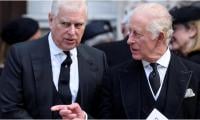 King Charles Runs A ‘mafia’ Not A Royal Family’: Evidence Mounts Against Him Due To Andrew
King Charles Runs A ‘mafia’ Not A Royal Family’: Evidence Mounts Against Him Due To Andrew -
 TikTok Says No To End-to-end Encryption, Citing User Safety
TikTok Says No To End-to-end Encryption, Citing User Safety -
 Texas Primary Results: John Cornyn, Ken Paxton Head To Runoff In Heated US Senate Elections
Texas Primary Results: John Cornyn, Ken Paxton Head To Runoff In Heated US Senate Elections -
 Childhood Obesity Crisis: 220 Million Kids May Be Affected By 2040, Report Warns
Childhood Obesity Crisis: 220 Million Kids May Be Affected By 2040, Report Warns -
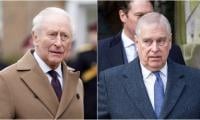 King Charles Gets Lumped In With Andrew: ‘He Has A Total Lack Of Awareness And Think Too Highly’
King Charles Gets Lumped In With Andrew: ‘He Has A Total Lack Of Awareness And Think Too Highly’ -
 Demi Lovato Recalls ‘challenging’ Time As Child Star With ‘insecurities’
Demi Lovato Recalls ‘challenging’ Time As Child Star With ‘insecurities’ -
 Microsoft Plans To License AI Agents Like Employees
Microsoft Plans To License AI Agents Like Employees -
 OpenAI Eyes NATO Contract For Coalition Networks Following Pentagon Deal, Source Says
OpenAI Eyes NATO Contract For Coalition Networks Following Pentagon Deal, Source Says -
 Sam Altman Responds To Criticism Over OpenAI’s Pentagon AI Contract
Sam Altman Responds To Criticism Over OpenAI’s Pentagon AI Contract -
 Arnold Schwarzenegger Receives Major Honour After Shocking Snub
Arnold Schwarzenegger Receives Major Honour After Shocking Snub -
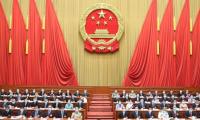 China’s Two Sessions 2026: Key Decisions, Economic Targets And Policy Shifts To Watch
China’s Two Sessions 2026: Key Decisions, Economic Targets And Policy Shifts To Watch
